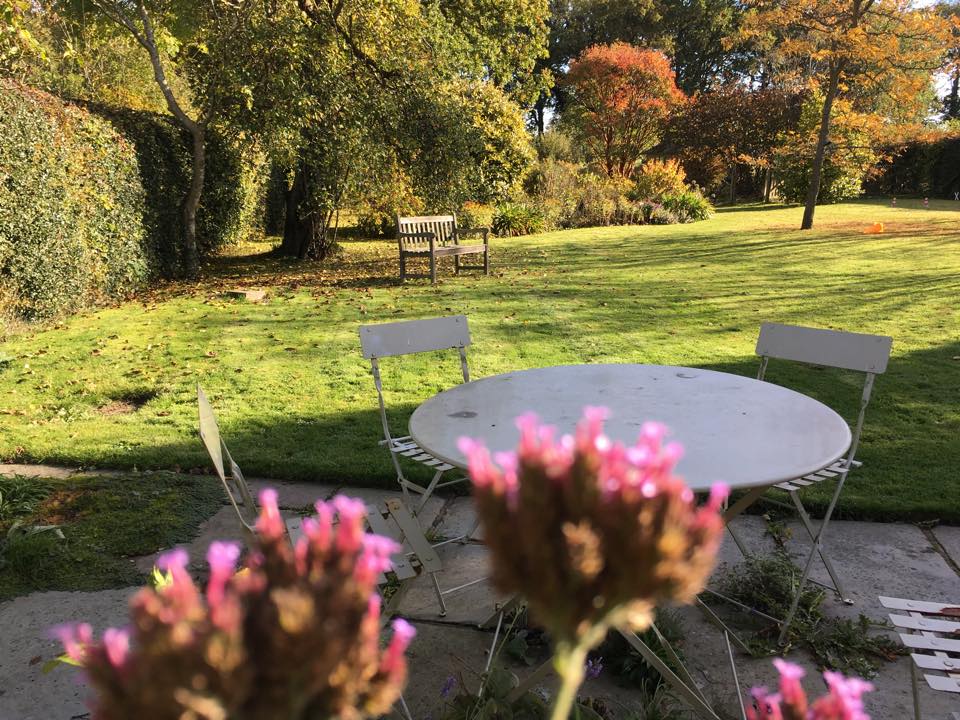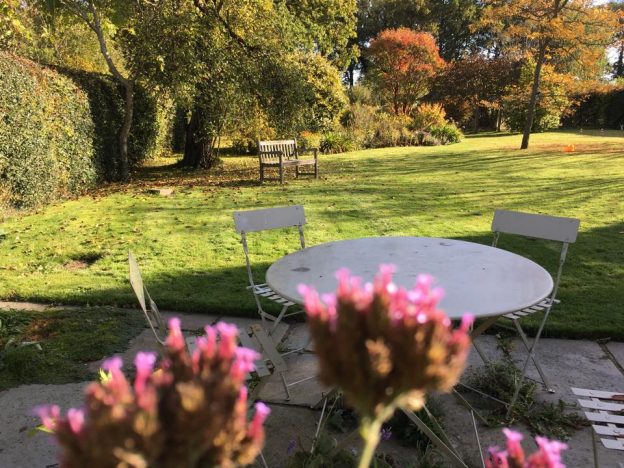Grief is intrinsic to the human condition, something we will all feel at some point. Chances are that as we grow older, we’ll experience more of it. However, we are not taught how to deal with it or how to be with others when they are in the midst of it.

Different Griefs
Grief encapsulates so much. Naturally, we associate grief with the death of a loved one, but grief is also experienced other ways; heartbreak, the loss of a relationship, a change in circumstances. Or it can be triggered by unhealed emotional trauma, loss of an opportunity or a situation.
In my own experience, I learnt that in dealing with our own grief there is nothing you can do except to feel what you feel and acknowledge it, however hard it feels. Grief is part of what makes us sentient beings. When we have these uncomfortable feelings, we can be tempted to numb them out with alcohol, drugs, pills, technology or whatever else is at hand, anything, to stop ourselves from feeling what we’re feeling.
Whilst your grief is brand new, it’s great to go out with friends, to the cinema, to immerse yourself in someone else’s story for a while. But find time to sit with what is too.
The processing of the grief is absolutely key. If you fail to deal with your grief you’ll find that when completely unrelated things happen, you’ll act from a place which has nothing to do with the current situation, and everything to do with your unresolved grief. So if you want to make each decision purely on that decision’s basis, if you want to meet each person just on their terms, make sure you prioritise processing your grief. Get help and support, you don’t need to do it on your own.
How Yoga Can Help Grief
By moving consciously and breathing deeply, we sit with the body, we bring our awareness in, we get in touch with emotions, we become present. We can feel physical discomfort, and that’s a useful practice in itself, in how to deal with challenges and physical discomfort.
When I was in deep grief, I used to just get on the yoga mat and I couldn’t practice for the tears. It was just too slippery. So my initial practice during grief was just child’s pose and sobbing. But even if that’s all you’re able to do, it’s really important work for your mental and physical health, so keep doing it.
Grief (like many other emotions) is reflected in the breath, we tend to hold it, our breathing becomes shallow and constricted.
Our breath can release emotions so by learning to relax your breath – this then has a very deep physical and emotional affect. The (very normal) unpleasant feelings of tightening in the chest can be reduced by moving your body and feeling your breath. These are tools you have on hand at all times to stop your grief becoming despair, and to help you to see the way out of your feelings.
Dealing With Other Peoples’ Grief
We’re not taught how to deal with other people’s grief and so many people feel helpless during a friend’s grief. Although of course you cannot take that grief away from your friend (and nor should you try), there are some things you can do to help. Everyone deals with it dfferently so take their lead on it, be there for them, listen and offer comfort. The grief changes, the feeling changes but it never really goes away. We learn to live with it.
If you ask them to give you a call if they need anything, they probably won’t so keep in touch with them. Offer to help them practically – maybe take care of the kids or take them some food round. The small things matter.
In my experience, grief has led to new opportunities, new openings. With death, comes new life, without the falling of the trees in Autumn, we wouldn’t have beautiful springtimes. Death is perhaps the most important process in our life, and our life is perhaps a preparation for our death and transformation. Our entire lives are transformation, as is the case in death. It is all an opportunity to live more, a reminder to breathe every breath, see the beauty all around you and live every day, truly as if it were your last, with a heart full of strength, courage, grace and love.
And if you’re going through grief right now, my heart goes out to you truly. I hope that your pain subsides soon. This class with Leila Sadeghee may help you in your time of difficulty. Most of all, be kind to yourself and take the time to embrace who you are each and every day. Our Embrace Your Essence series with Kirsty Norton may well help.
This post was written by Kat Farrants with help from Kirsty Norton.







What a heartfelt article, and one that offers a sense of comfort to me. It’s curious how we can discount feelings however big or small and try to remedy them quickly for fear of loosing control. Sitting with them, as I do now, takes great strength and determination, but ultimately I hope some clarity will come.
Reaching out to good friends and family and expressing your vulnerability takes some courage too, but I also find it brings some comfort.